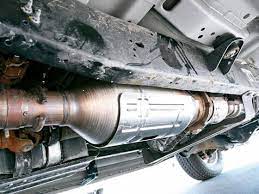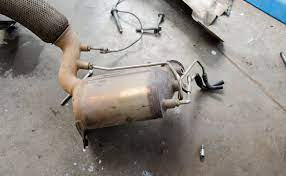How to take care of the fuel exhaust system?
 The exhaust system is an element with many hazards. The first threat from which we really cannot protect it, but is delaying it, is rust.
The exhaust system is an element with many hazards. The first threat from which we really cannot protect it, but is delaying it, is rust.
Why rust?
Rust on the exhaust system is primarily caused by the material from which it was made, or sheet metal. In addition, his working conditions are extremely unfavorable – high temperatures, dust, dirt from the asphalt and perhaps the most devastating factor – road salt during the winter. The result is an accelerated sheet oxidation process.
Where does it start?
Initially, rust attacks the weakest parts of the exhaust system – joints and vibration dampers. Other fragments affected by the “rust attack” are muffler boxes. An element that is quite durable and resistant to rust is the exhaust manifold and catalyst. The service life of the exhaust system is at least 5 years or 120,000 kilometers. The simplest and most effective way to maintain your exhaust system is to wash it regularly. Why? Because only regular removal of dirt from the exhaust system can extend its service life. The process is especially important after the winter and before the fall. Also, be sure to clean the body thoroughly when you decide to clean the exhaust system. However, remember not to wash it immediately after extinguishing the drive unit, as the exhaust system will be warmed up.
 AND WHAT ABOUT DPF FILTERS?
AND WHAT ABOUT DPF FILTERS?
Currently, the most important element in the exhaust system of diesel engines is the diesel particulate filter, commonly referred to as DPF / FAP. It is responsible for trapping soot particles from fuel combustion. Unfortunately, the filter is clogged and needs to be replaced. In most cars, the ignition process of the filter is fully automated, but the driver should know how the car behaves during this process. Why? To prevent the engine from shutting down abruptly, which will interrupt the ignition process. Of course, one interrupt will not affect the state of the filter, but when this process is repeated, we will be forced to change the filter.


